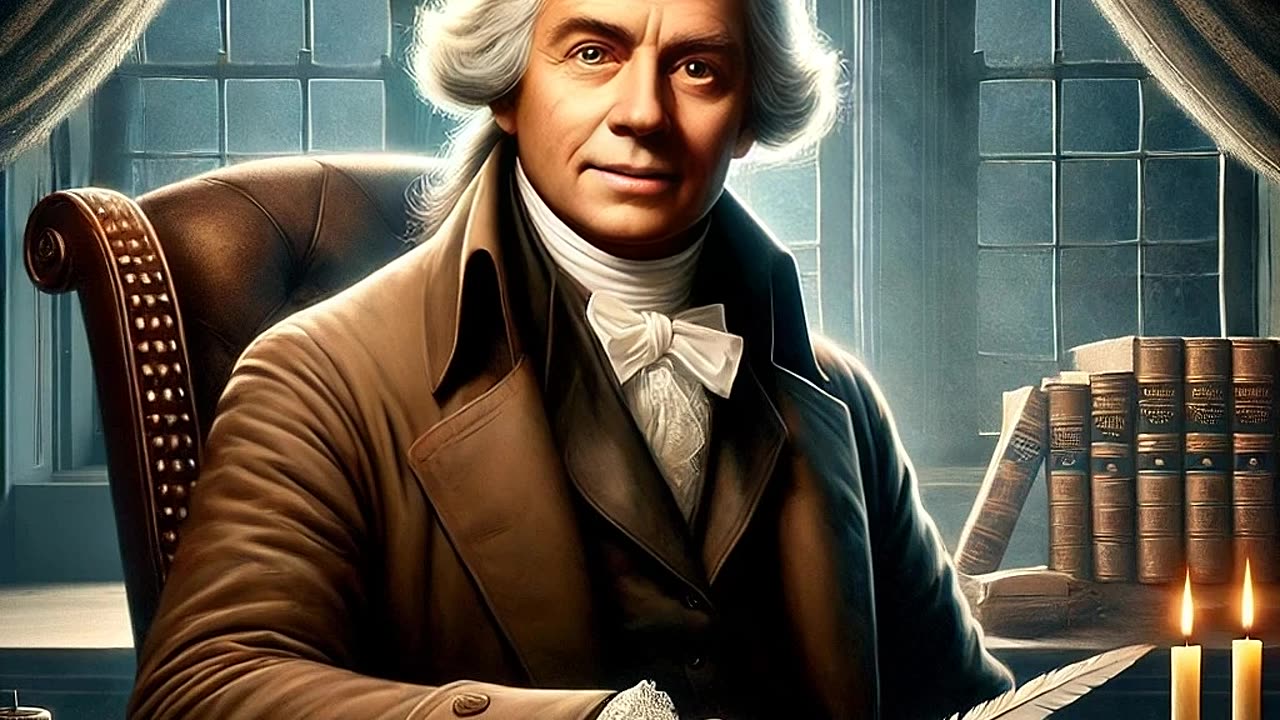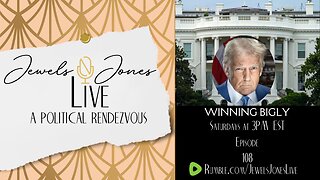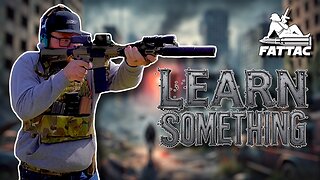Premium Only Content

John Jay Tells His Role as President of the Continental Congress During the Revolution
Presented to you by: http://www.HistoricalConquest.com
Read more on our blog at: https://www.historicalconquest.com/blog
My name is John Jay, and I had the privilege of serving the young United States during some of its most pivotal moments. I was born in 1745, in New York, into a well-established family. Growing up, education was highly valued, and I attended King's College, which you now know as Columbia University. My early life prepared me for a future that I could not have imagined — a future where I would help shape the very foundation of this country.
When tensions began to rise between the American colonies and Great Britain, I found myself pulled into the cause for independence. Now, don’t get me wrong — at first, I wasn’t in favor of a full-blown separation from Britain. I believed that we could reach a peaceful resolution. But as the situation escalated and it became clear that Britain would not recognize our rights, I joined the Continental Congress and threw my support behind the push for independence.
Perhaps you’ve heard of the Declaration of Independence? While I didn’t sign that document, I was busy working behind the scenes to support the revolution in other ways. My passion for justice and law led me to become President of the Continental Congress. Yes, I served as president of the very group that helped organize the revolution! During the war, I was also sent to Spain to secure financial and military aid. These diplomatic efforts were crucial to our victory.
But my role didn’t end with the war. In 1783, I was one of the men who negotiated the Treaty of Paris, the agreement that officially ended the American Revolution and recognized the independence of the United States. Imagine that moment — sitting in a room with representatives from Britain, finally securing the future of the nation I had worked so hard to help create.
Afterward, I continued to shape the course of this new country. Along with James Madison and Alexander Hamilton, I wrote a series of essays that you might have heard of — the Federalist Papers. These essays argued for the ratification of the U.S. Constitution and helped lay the groundwork for our system of government. My contributions to this effort are often overlooked, but I like to think that my words played a part in convincing people of the importance of a strong national government.
In 1789, I was appointed as the first Chief Justice of the United States. Can you imagine being the first person to hold that office, helping to define the role of the Supreme Court? It was a monumental responsibility, but I relished the opportunity to serve my country in this new way.
One more thing I’m particularly proud of is the Jay Treaty, which I negotiated with Great Britain in 1794. Although the Revolutionary War had ended, tensions between our two countries remained. This treaty helped to avoid another war and ensured that we could continue to trade with Britain, which was essential for our young nation’s economy.
So, young scholars, what I hope you take from my story is this: never underestimate the power of diplomacy, reason, and dedication. I may not have been on the battlefield with a musket, but I fought for this country with my pen, my words, and my mind. You, too, can contribute to something greater than yourselves, even if you start out behind the scenes. The future of your country — and the world — may one day depend on the decisions you make today.
Visit us at: https://www.historicalconquest.com/marketplace
#historicalconquest #history #historical #ancientamerica #ageofexploration #france #french #iroquois #native #nativeamerican #nativeamericanhistory #british #england #religiouspersecution #expansion #truehistory #settlers #settlement #spain #france #French #Frenchhistory #frenchcolonial #frenchheritage #colonizers #colonizer #FrenchandIndianWar #RevolutionaryWar #AmericanRevolution
-
 0:59
0:59
The Historical Conquest Channel
2 days agoAmerican Horse, the Elder, Tells His Story to Taking on the U.S. Government in War to Protect...
3 -
![Shadows Of Chroma Tower, Alpha Playtest [Part 1]](https://1a-1791.com/video/fwe2/1d/s8/1/5/Q/U/n/5QUnx.0kob-small-Shadows-Of-Chroma-Tower-Alp.jpg) 13:29:21
13:29:21
iViperKing
16 hours agoShadows Of Chroma Tower, Alpha Playtest [Part 1]
94.5K3 -
 54:05
54:05
TheGetCanceledPodcast
13 hours ago $12.01 earnedThe GCP Ep.11 | Smack White Talks Smack DVD Vs WorldStar, Battle Rap, Universal Hood Pass & More...
104K18 -
 13:37
13:37
Exploring With Nug
17 hours ago $6.92 earnedSUV Found Underwater Searching For Missing Man Jerry Wilkins!
69.2K4 -
 2:58:21
2:58:21
xBuRnTx
12 hours ago1st Warzone Stream Online
51.2K2 -
 6:10:21
6:10:21
JdaDelete
1 day ago $13.94 earnedDino Crisis - Sega Saturday
113K4 -
 23:22
23:22
MYLUNCHBREAK CHANNEL PAGE
1 day agoUnder The Necropolis - Pt 5
95.8K52 -
 2:26:11
2:26:11
Jewels Jones Live ®
2 days agoWINNING BIGLY | A Political Rendezvous - Ep. 108
153K46 -
 2:04:49
2:04:49
Bare Knuckle Fighting Championship
4 days agoBKFC FIGHT NIGHT MOHEGAN SUN FREE FIGHTS
79.5K7 -
 25:09
25:09
BlackDiamondGunsandGear
15 hours agoYou NEED to be Training For Whats to Come
54.7K11